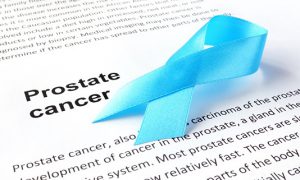 For many parents, the decision of where to enroll their child in daycare is difficult. There are many factors to consider, such as ensuring that your child remains in a safe and healthy environment at all times.
For many parents, the decision of where to enroll their child in daycare is difficult. There are many factors to consider, such as ensuring that your child remains in a safe and healthy environment at all times.
Dr. Rosa Tajian, Pediatric ER Physician is sharing a few tips to help parents with asking the right questions and making certain the best practices are used:
Safety
- Require proof that the facility and staff are fully licensed and trained– Asking for proof of licensing for the facility and staff is a must. Daycares should be able to provide official documents demonstrating their facility is upholding health and safety requirements. Training on safety policies and emergency measures such as CPR should be ongoing for staff. It is also important to learn how the staff is screened before hire; does the facility conduct a complete health and background check?
- Make sure that the staff to child ratio is adequate– There is safety in numbers. When choosing a daycare knowing how many adults are caring for groups of children is important. There are regulations that stipulate the maximum amount of children allowed per staff member in a daycare setting. To learn the appropriate numbers, a parent can always obtain that information from the New York State Office of Children and Family Services, Division of Childcare Services. It is always good to confirm from time to time that the ratio remains adequate because facilities can lose staff members and not replace them.
- Check for smoke and carbon monoxide detectors as well as fire extinguishers –Ensuring that these devices are present and functional reduces the risk for hazards. Each mechanism should be inspected as recommended and documentation of inspection should be presented if required.
- Medications and hazardous materials are out of reach– Ask the daycare provider to show you where hazardous substances are kept. They should be locked away and out of reach.
Health
- Hand washing policy– Daycares should reinforce strict handwashing policies. Staff should be required to wash hands after changing diapers, before preparing food, after wiping spit up, drool or runny noses.
- Sick policy –Find out if there is a strict, written policy for sick kids that all parents must abide by. Organizations such as the American Academy of Pediatrics provide general guidelines of when children should stay home from daycare or school. Equally as important is a sick policy for staff. Adults should be asked to go home if they are feeling sick or presenting symptoms that can jeopardize a child’s health.
- Cleanliness –The cleanliness of the daycare is extremely important. Ensure that play areas are properly sanitized as well as toys. Areas such as bathrooms and kitchens should be exceptionally clean at all times. Daycares should exercise a strict cross –contamination policy that prohibits actions such as washing or preparing bottles in the same sink used to wash hands after changing diapers.
- Immunization policy –Daycares often require immunization records when a child first enrolls. However, they should also follow up with parents to ensure that subsequent vaccinations are up to date. It is very important for the staff to receive vaccinations for diseases such as pertussis which can be harmful to children’s health.
The Department of Pediatrics at Jamaica Hospital Medical Center provides comprehensive care for children in our community. Our physicians are highly trained in a wide variety of specialties needed to help children overcome illnesses. To schedule an appointment with a pediatrician at Jamaica Hospital, please call, 718-206-7001.
All content of this newsletter is intended for general information purposes only and is not intended or implied to be a substitute for professional medical advice, diagnosis or treatment. Please consult a medical professional before adopting any of the suggestions on this page. You must never disregard professional medical advice or delay seeking medical treatment based upon any content of this newsletter. PROMPTLY CONSULT YOUR PHYSICIAN OR CALL 911 IF YOU BELIEVE YOU HAVE A MEDICAL EMERGENCY.



